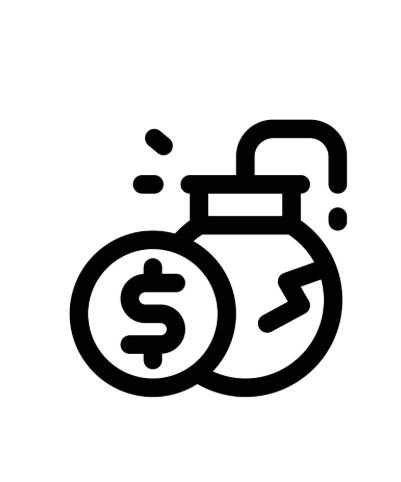
G20 Approved: Adequacy of Loss Absorbing Capacity
It’s not uncommon for governments to use indecipherable language as a means of diversion and concealment. The irony is that while government publishes information for the public—information critical to public safety and interests--the documents are often shrouded in jargon or legalese.
The result (perhaps an intended result) is that many people just avoid reading or questioning government-published info. Unfortunately, this comes at a potentially steep cost, as disastrous legislation can be made to appear tame and harmless.
Governments have pre-authorized banks to confiscate your funds in times of crisis.
Here’s an example. Have you heard about the “Adequacy of Loss-Absorbing Capacity of Global Systemically Important Banks in Resolution” agreement? This is a G20 decision that approves a Cyprus-style bail-in plan across the board.
First, what exactly is a “bail-in”? It means that governments are pre-authorizing banks to confiscate the assets of bondholders, shareholders, pensioners, and creditors. In other words, taxpayers no longer “bail-out” too-big-to-fail banks. Instead, banks will just bail-in—i.e. confiscate—funds to save themselves. Does this sound like a favorable solution? Not so fast. Look at the last term on the list: “creditors.”
This term conceals a detail that most people wouldn’t easily notice:
- CREDITORS = BANK DEPOSITORS, and
- BANK DEPOSITORS = YOU
The Cyprus Banking Crisis intervention was a test case for a much wider implementation plan.
The language describing the bail-in procedures differs from country to country. Canada’s bail-in legislation is buried within the Canadian Annual Budget. In the US, bail-in plans are buried within other legislation.
The plan is to activate bail-in procedures during times of emergency. What’s unclear, however, is how governments and banks define “emergency.” What constitutes an emergency? What is the dividing line between an emergency and a non-emergency. Who will inform depositors when the emergency threshold is about to be breached?
And if millions of depositors are beholden to this involuntary confiscation, shouldn’t depositors know about this? Would depositors even approve of such a plan—which is nothing more than a deviously obfuscated form of “bail-out”?
Nominally, depositors don’t lose anything...except their right to withdraw and hold their funds (?).
If your deposits are government-insured, technically you won’t “lose” your funds as you would in a bank crash. You will most likely be compensated for your confiscated funds. In many cases, compensation will take the form of shares in the bank (whose values will be undergoing extremely volatile fluctuations and whose salability is questionable).
In this case “insurance” (as with “compensation”) would be another term that veils what most people would consider an injustice.
Let’s cut the bull and use plain language: the G20 decision gives banks the legal right to steal funds from its own depositors. That’s all it is!
How to protect yourself from a bail-in
1. Keep only the minimum amount needed for day-to-day transactions in fiat currency: unfortunately, everyone needs a checking account for daily expenditures. But this doesn’t mean that you can’t convert the bulk of your wealth into a form that is not dependent on fiat currency or the banks. You may want to buy precious metals or invest in a gold and silver IRA. It’s also important to avoid CUSIP-tagged precious metals, as those are monitored assets which can be potentially seized.
2. Store your wealth in a private vault that is not owned by a financial institution: this is a no-brainer, as neither government nor banks can easily confiscate private assets to which they have no access.
On the positive side, these two solutions provide you some optionality: you can protect the majority of your funds from confiscation while holding the option to transfer any preferred amount back to your bank account.
Think of pay-offs over probabilities. Although a major banking crisis is (thankfully) not a frequent event, when it does happen, the negative pay-off will be far more devastating that the probabilities don’t even matter.
We cannot predict when the bail-in crisis will take place. But this possible reality has now been formalized. And when it happens, there will be no warning.
GSI Exchange is pleased to bring our 75 years of market expertise to work for you in our exclusive brochures; The Silver Action Plan, The Power of Gold, Precious Metals IRA Guide and the US Bank Expose, all of which are free of charge and available to download immediately when you click here.











